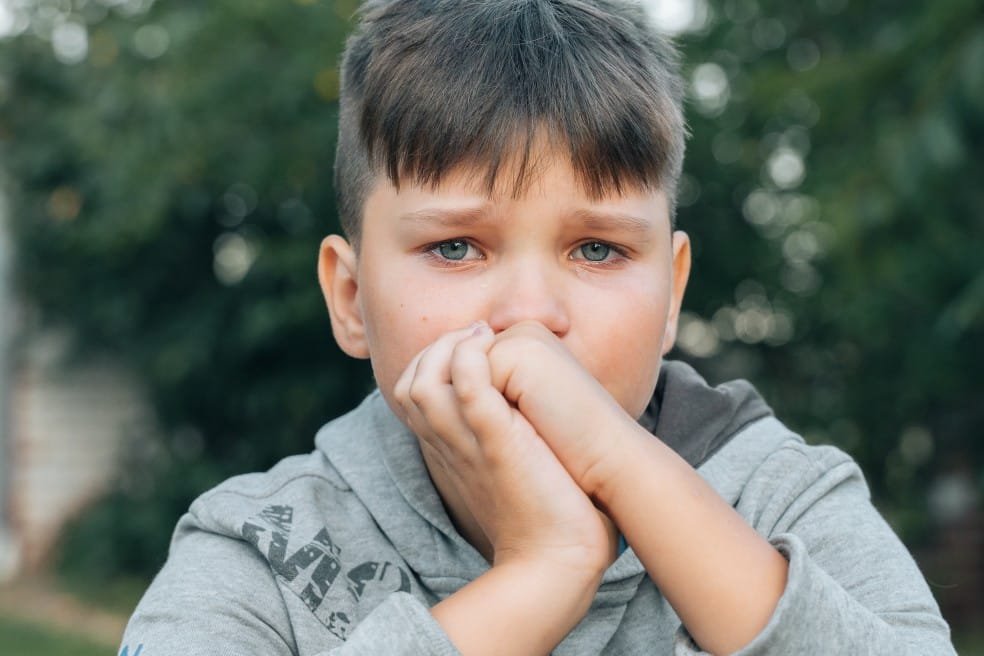The thing about poisonings is that they sometimes aren’t caused by obvious hazardous items. If you know or suspect your child has been poisoned, this can be an extremely frightening experience for any parent. In this post, we’ll share how you can recognize poisonings and what to do if your child has been poisoned.

Recognizing poisons
A poison can be anything that makes someone sick, and in more serious instances, it can be fatal. Poisons can affect a person by ingesting, inhaling, or making contact with the skin or eyes. Some of the more common ways people can be poisoned are from medications, plants, household cleaning products, food, and animals.
Here are some common household poisons that can be dangerous, especially to little ones. Ensure all of the following are kept out of reach of children at all times:
Medications/medicines
Medications and medicines pose the biggest risk to those who take them when they are not prescribed to them, or too much is taken. Both of these can have a devastating effect on children.
Batteries
Batteries of all kinds can be hazardous, but namely button batteries and small batteries are the most dangerous for children. This is because they are easily digestible and are commonly in areas of reach to them, such as remotes and toys. Once they are swallowed, they can cause electrical currents in the body, leak harmful chemicals, and cause significant burns to the soft tissues of the body.
Food poisoning
Sometimes this one is unavoidable especially if you are eating out or ordering takeaway as you can’t see the food handling measures or the freshness of the food before you buy it. Ensure your little ones don’t eat anything that is past its used by date.
Cleaning agents
If you’re like most, you’ve likely got a variety of cleaning products at your home. Here are some products that can be dangerous to your child if they get their hands on them:
- Pest control, pellets, baits, bug sprays and repellents
- Cleaning products and detergents
- Outdoor cleaning products
- Skin and hair products
Signs of poisoning
The signs and symptoms of poisoning can vary greatly depending on the person’s reaction, the type of poison, and how much of the poison the child has come into contact with. Some symptoms include vomiting, diarrhea, rashes, breathlessness, abdominal pain, nausea and drowsiness.
What do you do if someone has been poisoned?
All poisonings should be treated seriously, and first aid should be administered straight away. Poisons can be fatal, so it is important to act even if the child is showing no obvious signs. If the child is having trouble breathing, they have collapsed, or are worsening, call triple zero, 000 immediately.
In addition to following the first aid courses steps as outlined by the Queensland Poisons Information Centre, you should call the poisons hotline number on 13 11 26 for assistance and advice. They can tell you if you should call an ambulance or what can be done at home to help, and what to look out for over the next few hours.
Here are some common myths about poisoning
Here are some common myths about poisoning that we are debunking.
You should force vomiting
It’s a common myth that you should induce vomiting if someone has been poisoned however, this can harm the child more for a couple of reasons. One is that the child may inhale vomit into the lungs or choke on it, and another reason is that the poison can cause burns as it comes up.
You should give milk if a child has ingested poison
When someone has ingested a poison, it needs to be diluted however, it doesn’t have to be with milk. Normal water will work just as well.
Applying tourniquets above a snake bite
Applying a tourniquet tightly above a snake bite can be dangerous. If someone has been bitten by a snake, emergency services should be contacted immediately. A bandage should be applied firmly, starting from with the toes or fingertips of the affected limb and continuing up the entire limb. Direct the casualty to remain as still as possible while reassuring them that help is coming.
Neutralizing chemicals with acidic products
Never use acidic products on burns caused by chemicals. This can make the burn worse by burning the skin further and can cause more severe scarring.
Look to Doctor Google for answers
We’re all guilty of looking up a symptom or aliment on google, but when a child has been poisoned, this is not the time to turn to Dr Google for answers. Call the Poisons Information Centre for accurate and up to date advice.
Preventing poisonings
As always, preventing poisonings is always better than treating one.
You can help to prevent poisonings within the home by keeping any potentially hazardous products well out of reach of children. This involves placing products such as cleaning products, health and beauty products, medications/medicines etc., up high in a lockable cupboard. Ensure that you prepare and store foods to align with the Food Standards Australia New Zealand (FSANZ).
Education is key. Teaching your children about potentially dangerous products can help them to understand that some things can be harmful to them.
Reference – https://www.childrens.health.qld.gov.au/chq/our-services/queensland-poisons-information-centre/

